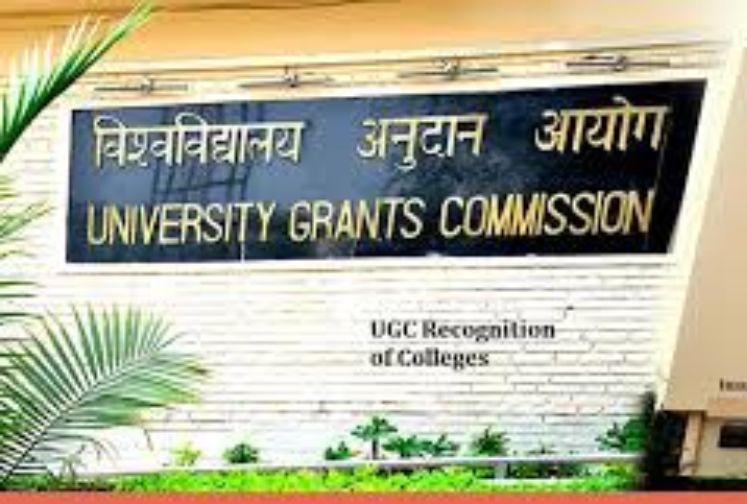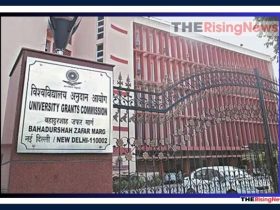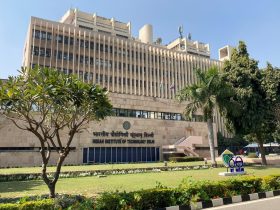NEW DELHI, August 1, 2024 – The University Grants Commission (UGC) has made a landmark decision, allowing universities across India to conduct their own entrance exams for undergraduate and postgraduate programmes where seats remain vacant after Common University Entrance Test (CUET) counselling rounds. This move by UGC allows universities to address the persistent issue of unfilled seats and streamline the admission process.
UGC Introduces New Policy to Address Vacant Seats in Universities
UGC Chairman Mamidala Jagadesh Kumar announced the new policy, stating that the Commission has issued standard operating procedures (SOPs) to help universities fill vacant seats efficiently.
“It has come to UGC’s notice that seats remain vacant in some Central Universities even after multiple rounds of CUET counselling,” Kumar explained. The UGC allows universities to take this step to optimize student intake and ensure educational resources are fully utilized.
Addressing Challenges in CUET-Based Admissions for UG & PG Programmes
The decision to allow universities to conduct separate entrance exams comes in response to challenges faced by institutions like Allahabad University and Delhi University. These universities reported inefficiencies and delays in the admission process due to CUET. By allowing universities to conduct entrance exams, UGC aims to prevent the waste of educational resources and ensure wider access to higher education for both undergraduate and postgraduate programmes.
Guidelines for University-Specific Entrance Exams Post-CUET Counselling
Under the new guidelines, UGC allows universities to hold independent entrance exams for vacant seats post-CUET counselling, while still maintaining CUET as the primary eligibility criterion. This approach is expected to provide more opportunities for students seeking admission to undergraduate and postgraduate programmes. The National Testing Agency (NTA), which conducts CUET, will work in tandem with universities to ensure a smooth transition.
Balancing CUET and University Autonomy
The UGC’s decision to allow universities to conduct entrance exams represents a significant shift in India’s higher education landscape. It addresses the inefficiencies of the current CUET system, which was introduced in 2022 as a standardized entrance test for universities nationwide. This new policy strikes a balance between centralized testing and university autonomy, especially benefiting institutions like the Central University of Himachal Pradesh (CUHP) that have struggled with seat vacancies.
Allows Biannual Admissions
In addition to allowing universities to conduct entrance exams, UGC has also permitted universities to offer biannual admissions starting from the academic session 2024-25. This optional measure aims to increase student intake and provide flexibility in introducing new courses. UGC allows universities to implement this system based on their individual capacities and requirements.
Impact on Higher Education Access and New Course Offerings
The impact of these changes is expected to be far-reaching. By allowing universities to conduct entrance exams for vacant seats and implement biannual admissions, UGC aims to reduce admission delays and ensure that more students can access higher education. This flexibility also allows universities to introduce new courses more frequently, adapting to changing educational and industry needs.
UGC’s New Policy
Students and university administrators are advised to review the new SOPs and prepare for potential independent entrance exam. The UGC’s official website provides detailed guidelines on how universities can conduct entrance exam and implement biannual admissions. Universities are expected to announce their plans for separate entrance exams soon after the CUET UG results 2024 are declared.
As the higher education sector adapts to these changes, it remains to be seen how effectively universities will utilize the opportunity to conduct their own entrance exams. The success of this policy will likely depend on how well institutions can balance the new flexibility with the existing CUET framework.
UGC will closely monitor the implementation and may provide further guidance based on the outcomes observed in the upcoming academic sessions.
The UGC’s decision to allow universities to conduct entrance exam for vacant seats marks a significant development in India’s education system. By addressing the challenges posed by CUET and offering more flexibility to universities, UGC aims to create a more efficient and inclusive higher education environment.
As universities begin to conduct entrance exams under this new policy, the landscape of higher education admissions in India is set to undergo a transformative change, potentially setting a new standard for balancing centralized and institution-specific admission processes. For detailed guidelines and updates, visit the UGC official website.
More News:
- AP University Development Aims to Be Premier Tribal Research Hub Despite Challenges
- IIT Madras and IDBI Bank Launch Cybersecurity Lab for Healthcare, Fintech & Aerospace Sectors
- IIT Mandi Mandatory Course on Reincarnation, Out-of-Body Experiences Sparks Debate Among BTech Students
- Indian Students Win Big at International Physics and Chemistry Olympiads 2024

















